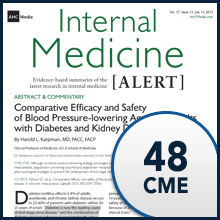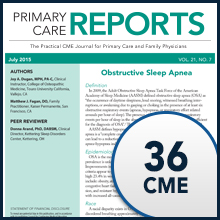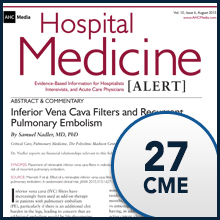Most Primary Physicians Hesitant to Fully Disclose Medical Errors
December 20th, 2016
ATLANTA — How likely would you be to fully disclose a medical error? If you are typical of most primary care physicians, the answer would be “not very,” according to a new study.
The report, published in the journal BMJ Quality and Safety, found that, while most primary care physicians would provide some information about a medical error, only a minority would fully disclose important information about potentially harmful medical errors to patients.
According to the study, led by Georgia State University researchers and focusing on 300 primary care physicians, most provided only partial disclosure of a medical error for two hypothetical cases involving cancer diagnoses they were asked to evaluate. In addition, the majority would offer only a limited or no apology, limited or no explanation, and limited or no information about the cause.
"The intent to disclose was not as frequent as we thought it might be," said Douglas Roblin, PhD, professor in the Division of Health Management and Policy in the School of Public Health at Georgia State University, and researcher at the Center for Clinical and Outcomes Research at Kaiser Permanente Georgia. "The two vignettes gave pretty consistent findings. The majority would not fully disclose, and we were hoping for full disclosure because that is the ethical expectation."
Disclosure by physicians in this study falls short of patient expectations and national guidelines, according to study authors who explain that the purpose of the study was to examine the extent to which primary care physicians' perceptions of event-level, physician-level and organization-level factors influence their intent to disclose a medical error in challenging situations.
The strongest predictors of disclosure, according to the research, were perceived personal responsibility, perceived seriousness of the event, and perceived value of patient-centered communication.
Although full disclosure of harmful errors to patients — including a statement of regret, an explanation, acceptance of responsibility, and commitment to prevent recurrences — has been the standard for physicians in the United States for nearly a decade, the study team points to evidence that full disclosure often doesn't occur. They caution that no response, or an inadequate one, can make a bad situation much worse, while full disclosure appears to lessen the negative effect.
The study included primary care physicians from three integrated healthcare delivery systems in Washington, Massachusetts, and Georgia, which were part of the HMO Cancer Research Network's Cancer Communication Research Center. Responding to the study were 333 primary care physicians out of 630 receiving the survey, with most — 71% — having been in practice more than a decade.
Physicians were asked to evaluate two difficult, but realistic, hypothetical cases: 1) a delayed diagnosis of breast cancer, and 2) a care coordination breakdown that caused a delayed response to patient symptoms.
When asked what they would tell the patient about the cause of the error, 77% of physicians for the case involving delayed diagnosis of cancer and 58% of physicians for the case involving a care coordination breakdown would offer either no information or make vague references to miscommunications. In both cases, more than half would not proffer an apology or would offer only a vague expression of regret.

FEATURED RESOURCES





